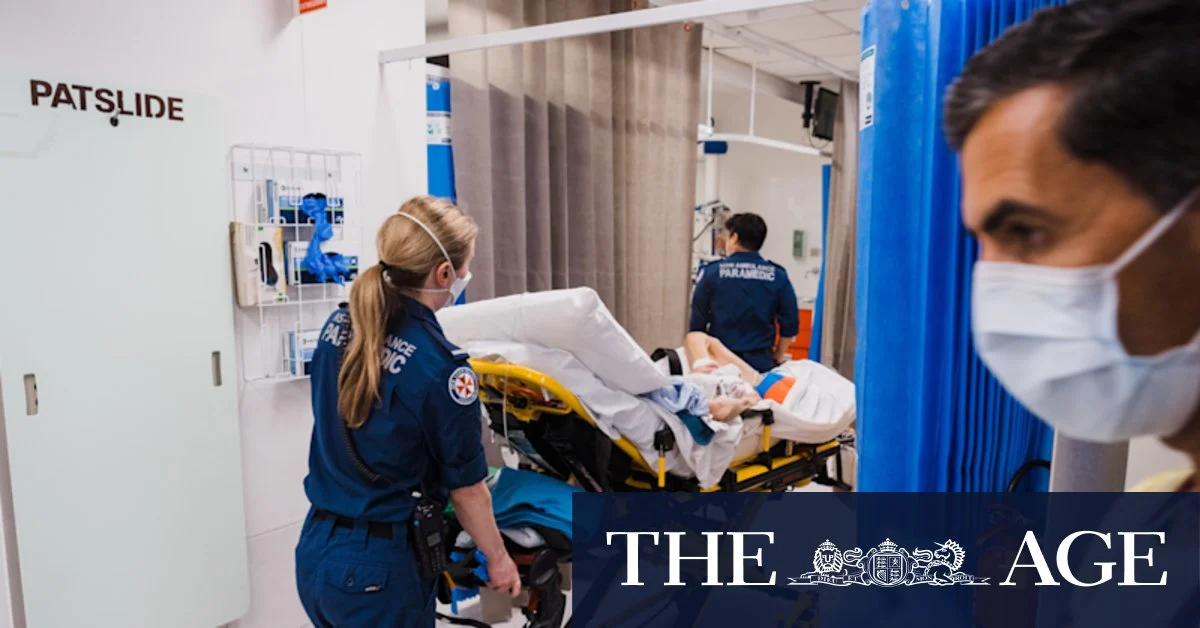Beasley said the failure to embed prevention into the health system despite repeated evidence and recommendations was “beyond comprehension”.
“So, too, is how we have allowed NSW public hospitals to have so many patients in wards for extended periods of time beyond any need for acute care to be provided to them, many of whom are elderly Australians who could and should be cared for in aged-care facilities,” he said.

Commissioner Richard Beasley at the Special Commission of Inquiry into Healthcare Funding’s expert panel meeting in January last year.Credit: POOL / NCA NewsWire / Gaye Gerard
Beasley scolded Australian governments for not imposing a sugar tax, describing this as a “monumental failure” amid rising obesity rates.
The report recommended that preventative healthcare be made a whole-of-NSW government priority and tasked the state government with delivering primary care and aged care in communities that lacked access to either.
Loading
“For a health system to function as we would want it to, primary care cannot be allowed to wither. If that happens, we will pay for it in worse health outcomes and poorer population health,” Beasley said.
Access to Commonwealth funding streams “should clearly be pursued by the NSW government”, but delivering care “should not await the outcome of those intergovernmental discussions”, the report said.
The report backed health economist Stephen Duckett’s view that there had been a “collapse of workforce planning” in Australia’s healthcare system, which relied on internationally trained doctors and nurses because “we have not grown and trained our own”, a shortage of GPs, psychiatrists, radiologists, nurses and midwives, which hit regional and rural areas hardest.
He noted NSW Health staff had not had a significant pay rise for more than a decade, and suffered from high levels of burnout.
“Some, I suppose, might regard this as a ‘woke’ topic. It is not,” Beasley said. “Workforce stress, fatigue, and burnout are serious issues, and particularly so in a public health system.
“It is not the task of this special commission to determine pay rates or other award conditions for workers in the NSW Health system. It is a fact, though, that many no longer share income parity with their counterparts in other states.”
But the commission outlined a scaffold for an award reform process conducted by the Industrial Relations Commission, which the Health Services Union has welcomed.
The Special Commission of Inquiry was an election promise by the Minns government in response to the HSU’s calls for a royal commission-style inquiry into the sustainability of the NSW Healthcare system.
Health Minister Ryan Park said the government will consider the findings.
“The NSW health system is one of the highest performing in the world, supported by the most talented and dedicated clinicians and workers,” Park said. “It doesn’t mean that we don’t have our challenges, and it doesn’t mean we can’t find more ways to improve.”
Health Services Union secretary Gerard Hayes said NSW had the opportunity to fundamentally shift the healthcare system “from costly emergency and surgical intervention to allied and preventative care [which] will save money and improve people’s health, which is not only good for individuals but the wider community”.
NSW Health Secretary Susan Pearce welcomed Beasley’s characterisation of the health workforce as “NSW Health’s greatest asset”, and acknowledged “the longstanding recruitment issues, particularly in regional, rural and remote areas”.
Start the day with a summary of the day’s most important and interesting stories, analysis and insights. Sign up for our Morning Edition newsletter.


